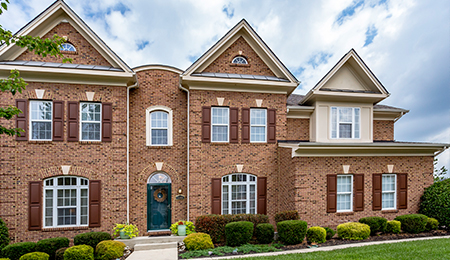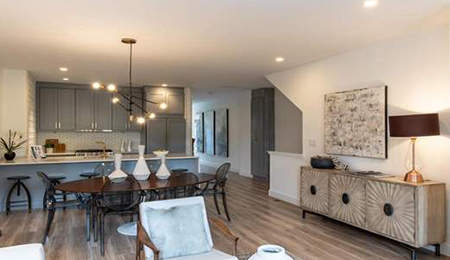Here are several critical errors to avoid as a home seller.
The first mistake a seller can make is to not be properly educated on the current market. If you’re not up to date on what’s going on out there, it’ll be tough to make decisions that are in your best interest. That’s why one of the first things we do when we meet with sellers is break down the market beyond the basic understanding of whether it’s a buyer’s or a seller’s market. We’ll look at the most recent data from your county, ZIP code, and neighborhood.
On every scale including the hyperlocal, we’re aiming to identify such things as the level of inventory (that indicates the direction the market’s headed) and absorption rates (that tell us how fast that inventory is moving). Trends emerge from comprehensive data, and just like in any other type of investing, “the trend is your friend until it ends.” For instance, in 2007, we started seeing inventory rise as contracts declined, meaning there were indicators pointing to a massive shift. Unfortunately, not enough Americans were educated on how to interpret those signs.
Reading the signs and sensing where the market’s headed can help you differentiate a good offer from a bad offer. If the market is going up, perhaps you make the call to wait a little longer and get more offers; if there’s evidence that things are shifting downward, then it’s in your best interest to be more time-sensitive when evaluating offers.
Another mistake I see sellers make is failing to properly prepare their houses for sale. There are huge swings in the market regarding price—18% from the bottom of the market to the top. Where you fall in that 18% swing depends on a lot of different factors, but easily one of biggest is preparation.
Many people overlook low-cost, high-return improvements. For example, one of our houses on the market wasn’t attracting great offers, so I recommended the sellers paint their cabinets and upgrade to granite countertops, an improvement totaling $2,500. Once we put the home back on the market, they received $20,000 more for it! Don’t think you have to rip and redo your whole kitchen; oftentimes, a simple, targeted improvement can change everything.
In addition to decluttering and taking care of any deferred maintenance, make sure your home is staged properly. We have seen properties go for 5% to 7% more than the average home in the area just because they were staged for the buyer’s eye. How we live in our properties is vastly different from how we sell them. Staging is necessary to trigger that initial emotional attachment from buyers.
Lastly, sellers often do themselves in by not hiring the right expert. You want to make sure you have a great relationship with the person you hire to represent your interests. Is that trust component there? Do they have a proven, repeatable process and a wealth of satisfied clients to whom they can refer you? Their track record of success should be long, their network should be wide, and their knowledge should be deep. Your agent’s expertise directly impacts your bottom line; we recently facilitated a negotiation that swung $86,000 in our seller’s favor. That kind of gain doesn’t happen by accident, so make sure you’re working with the best.
So, if you’re interested in selling your home and would like to set up a consultation, feel free to call, text, or email us. We’re here to maximize your home sale and make sure you avoid costly seller mistakes like these!





